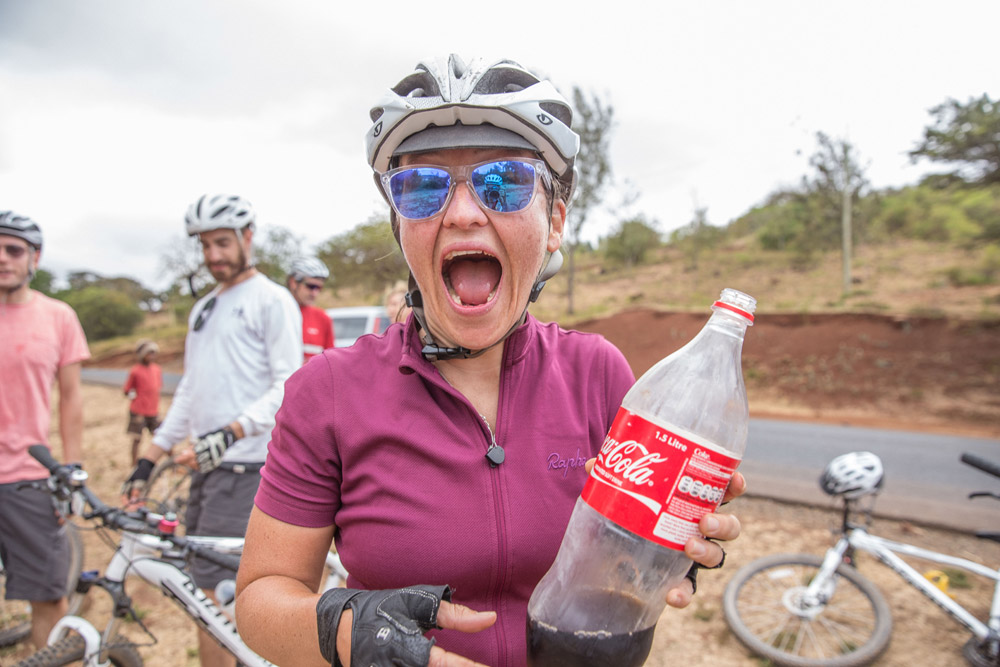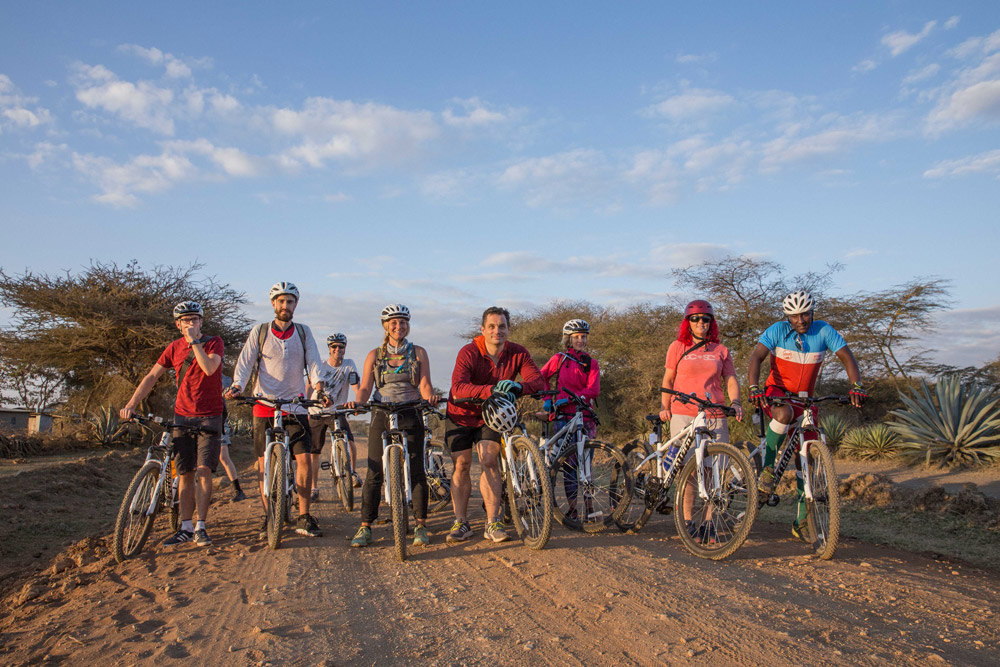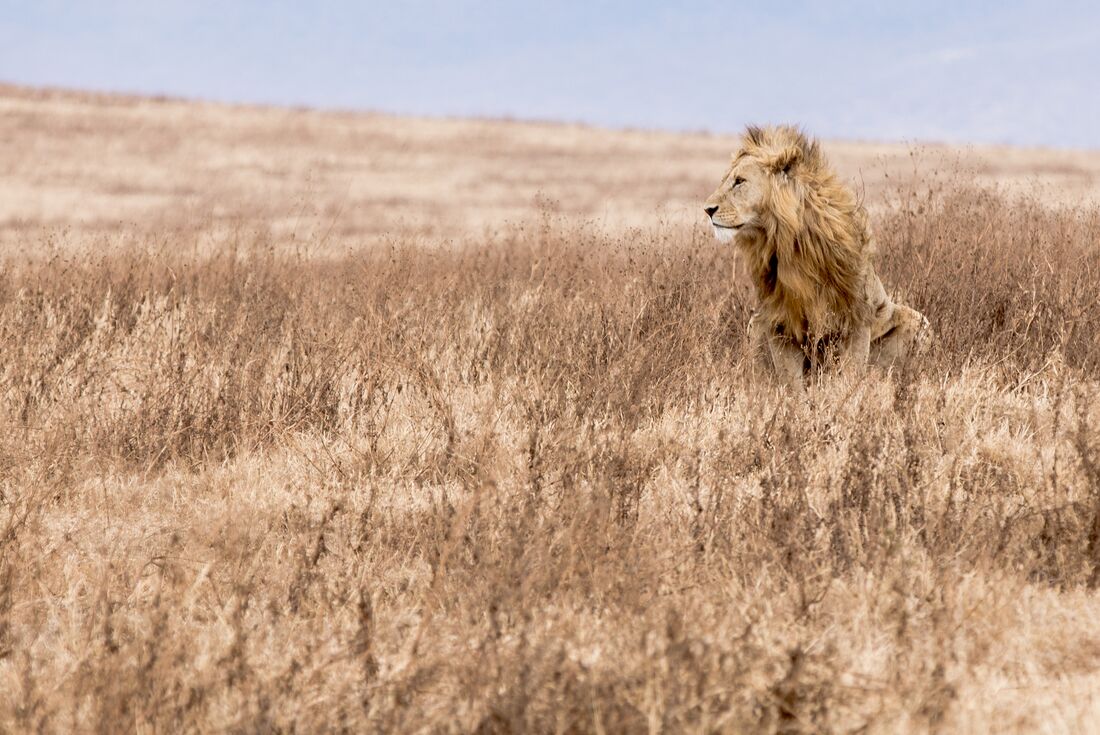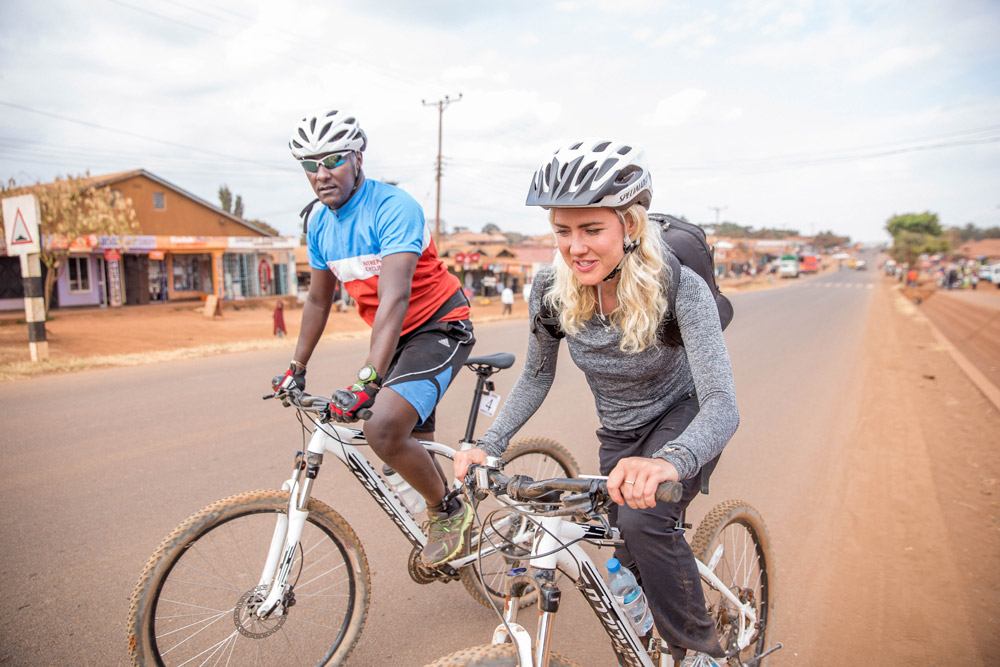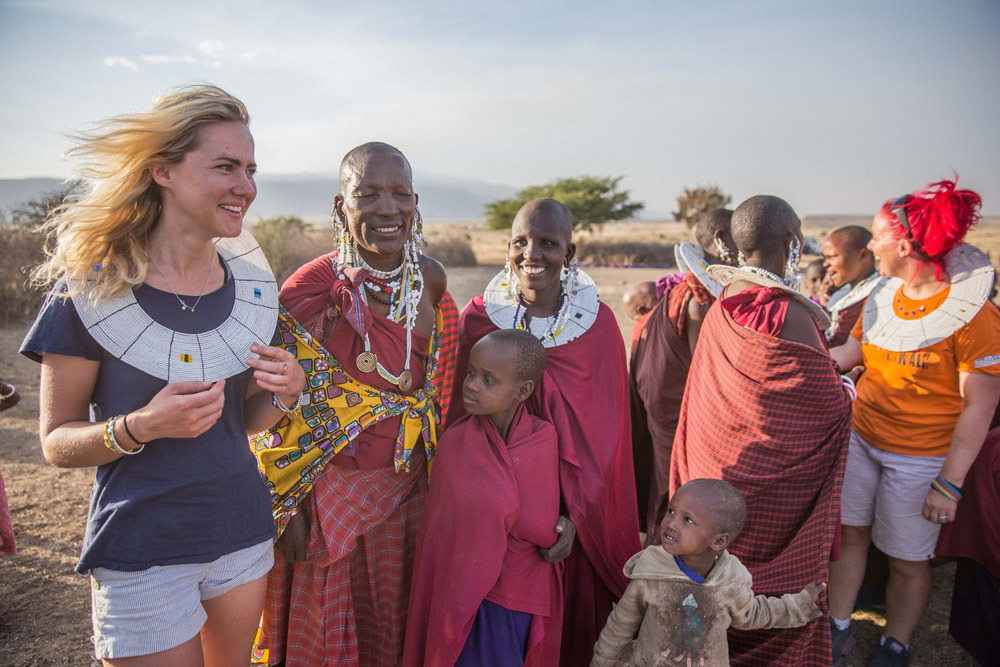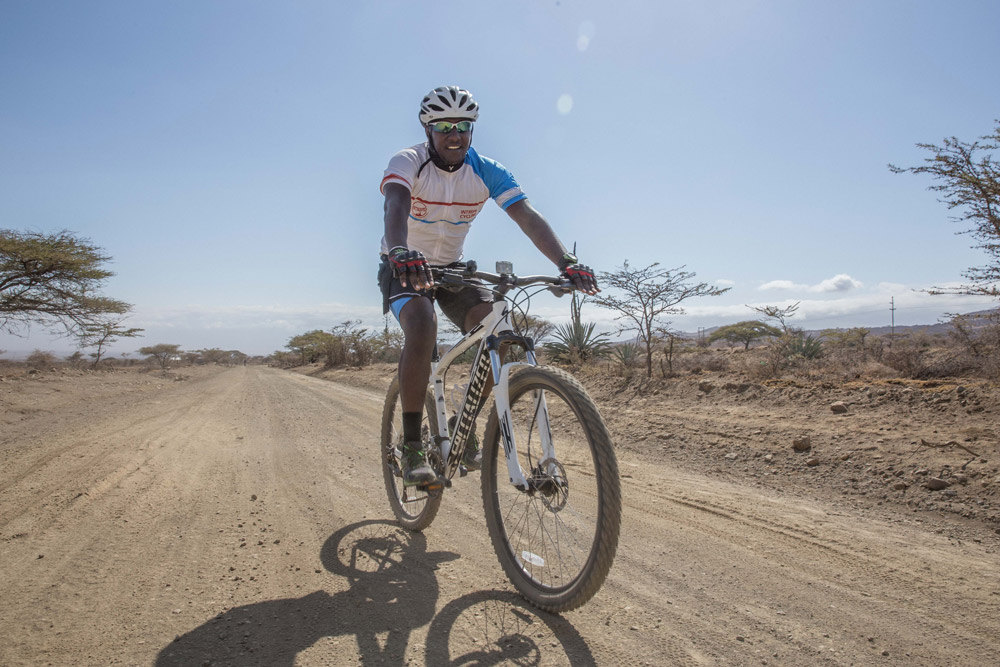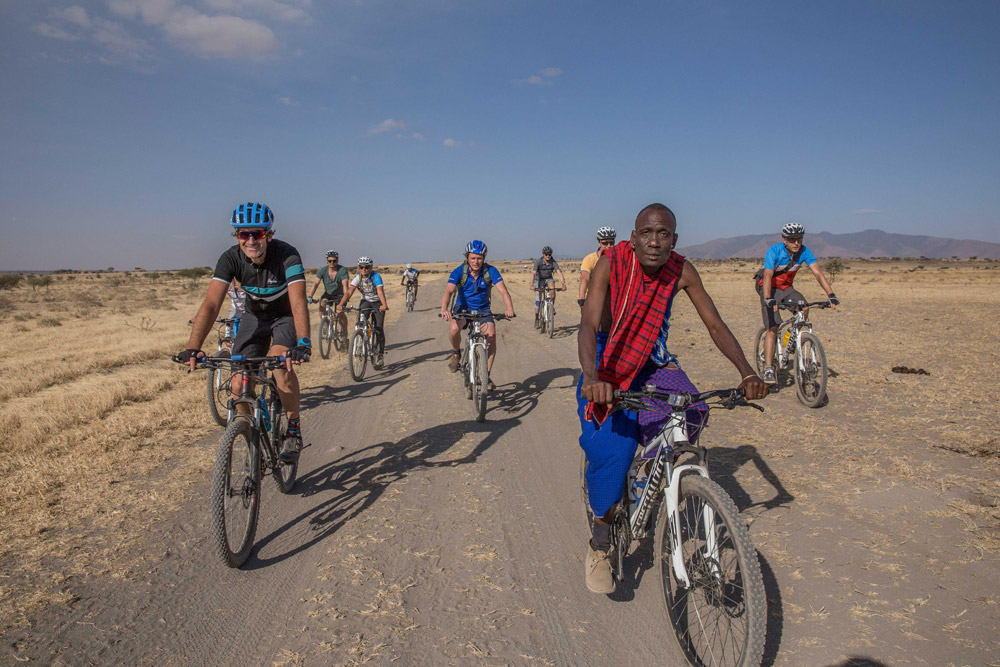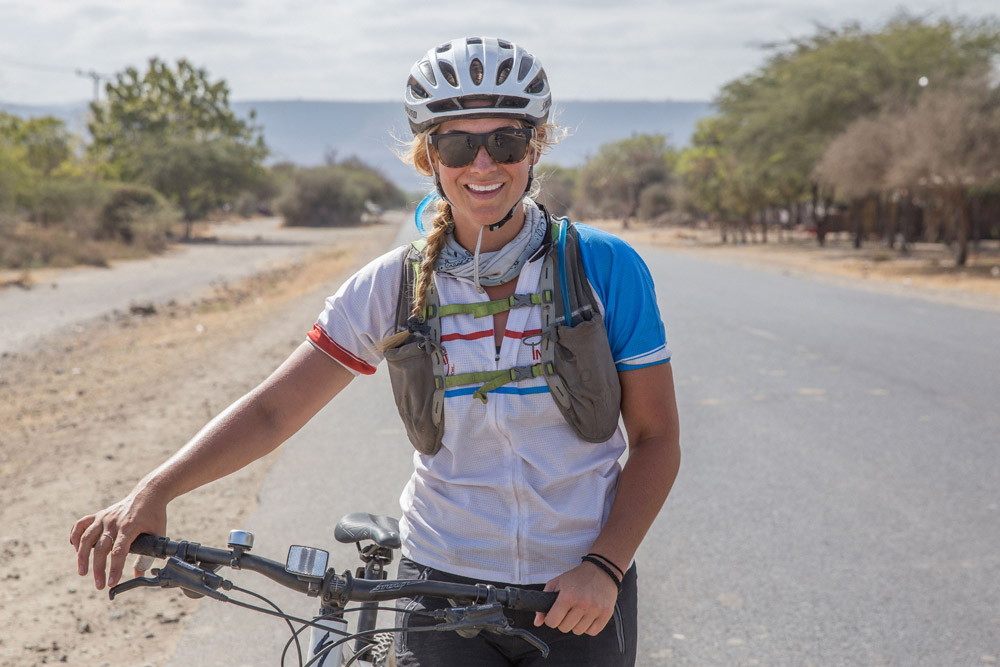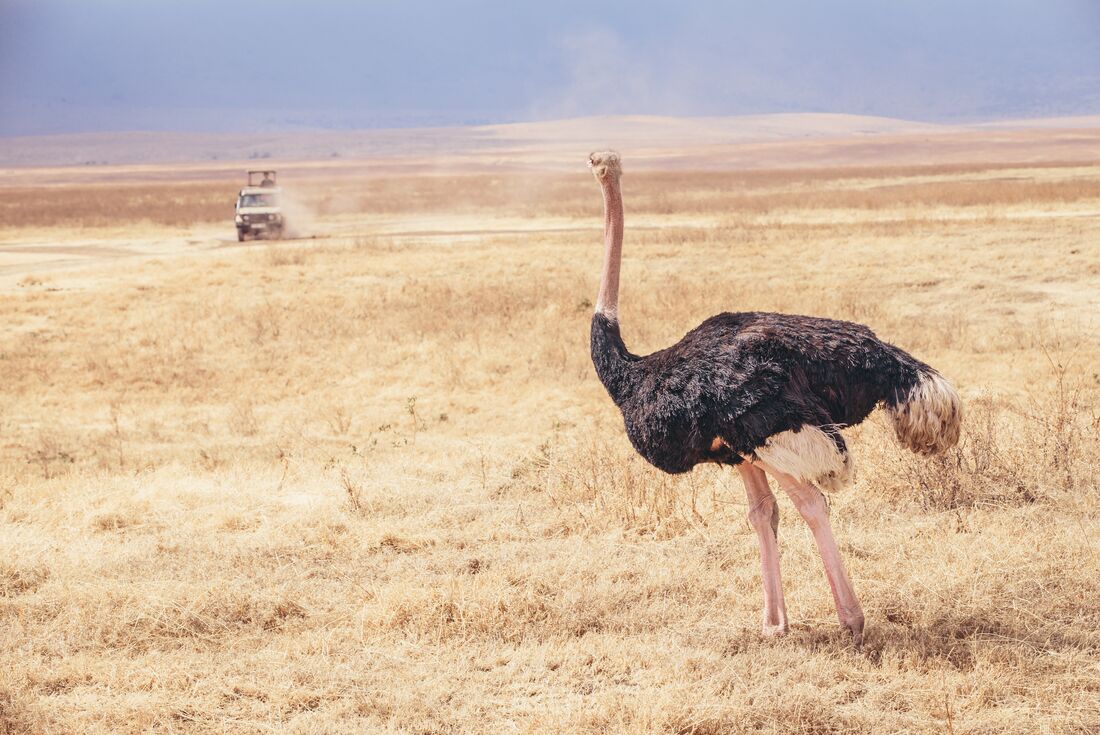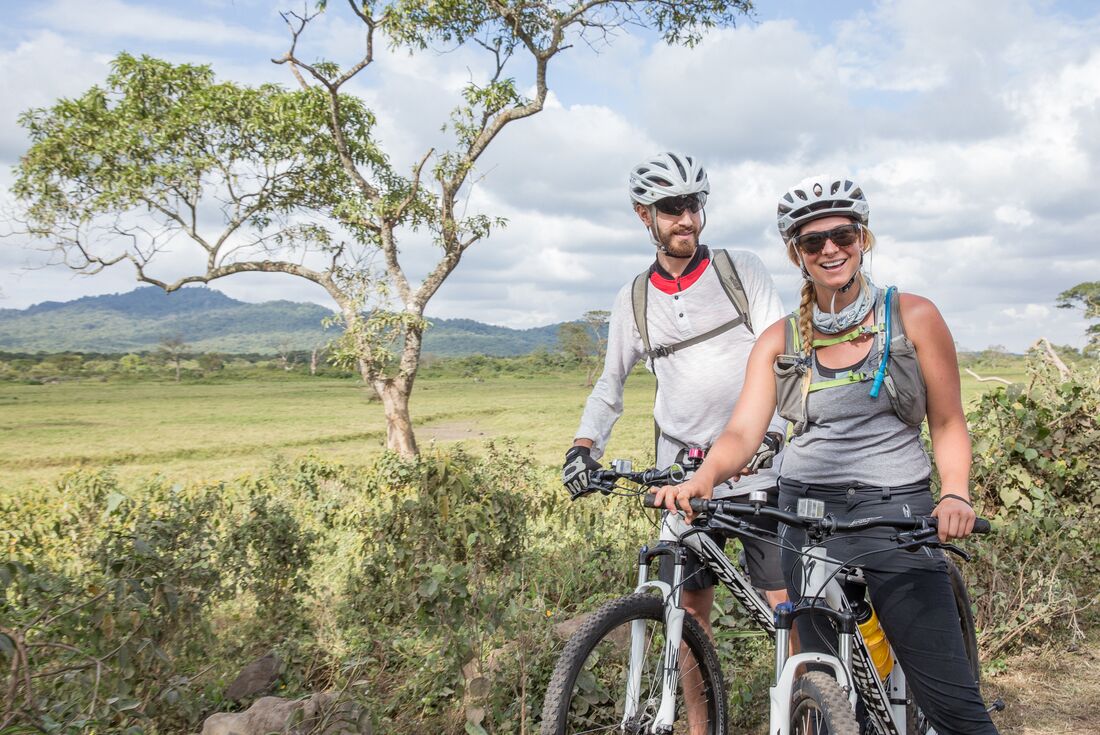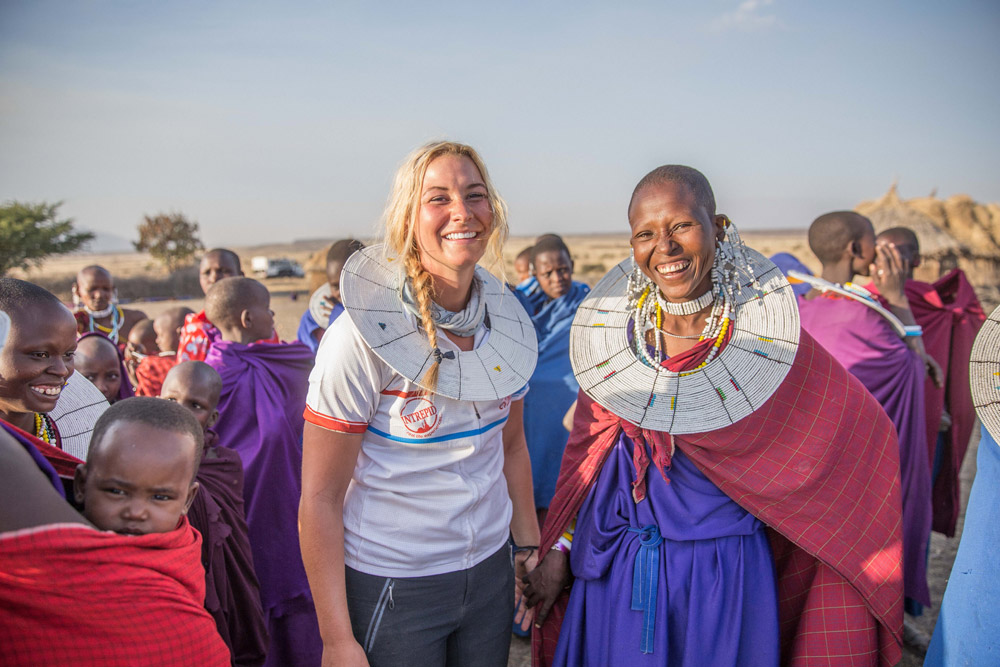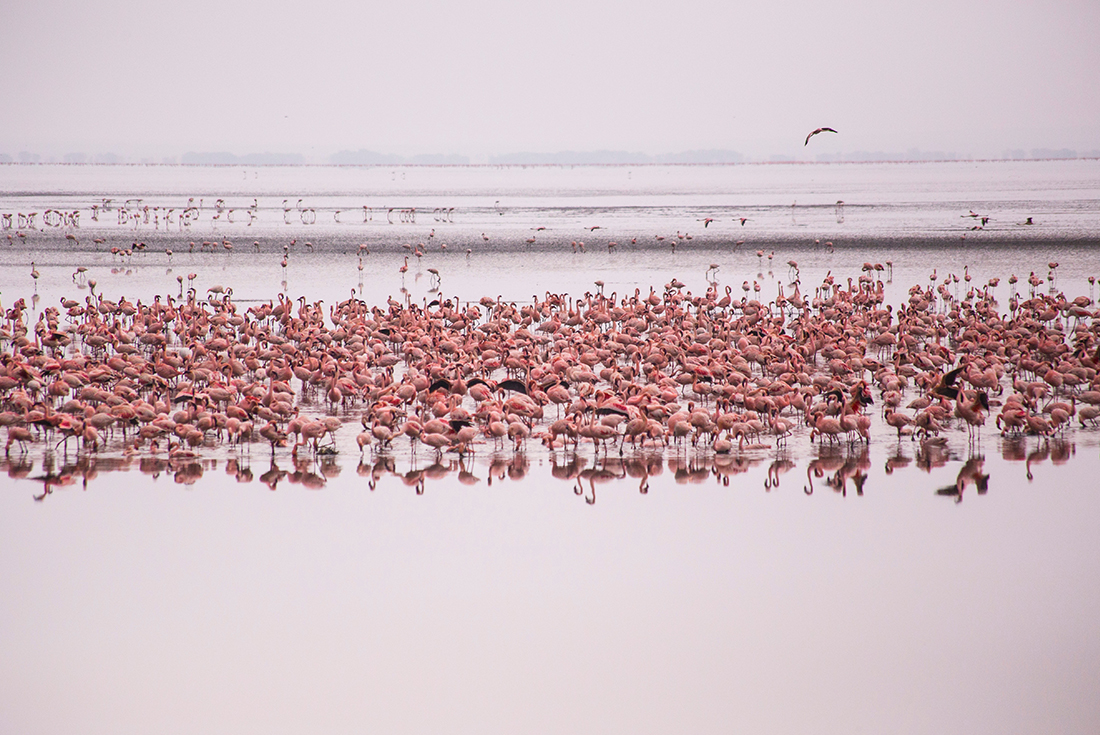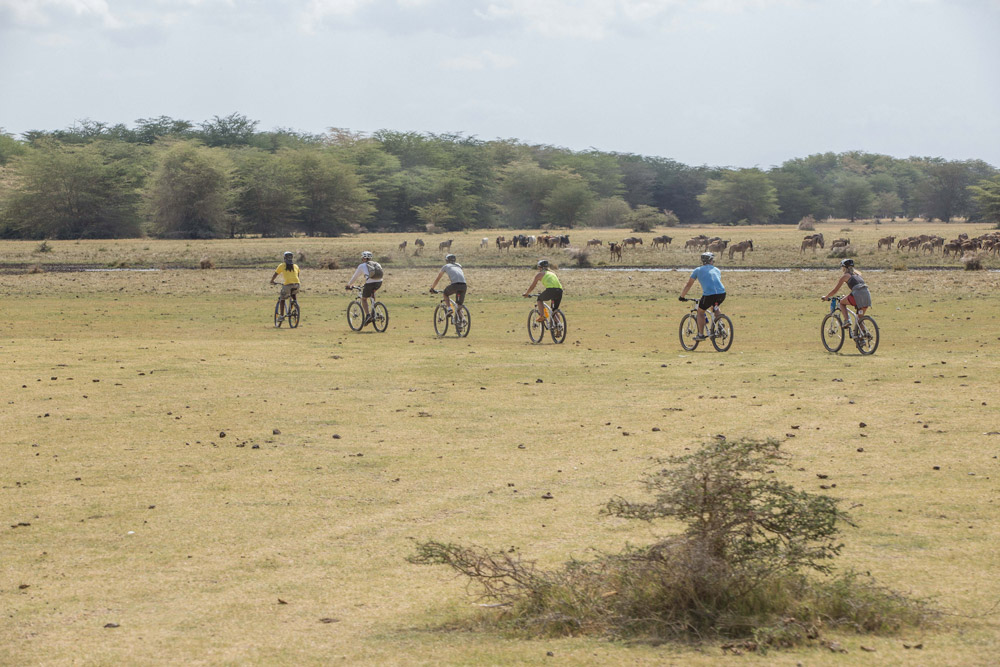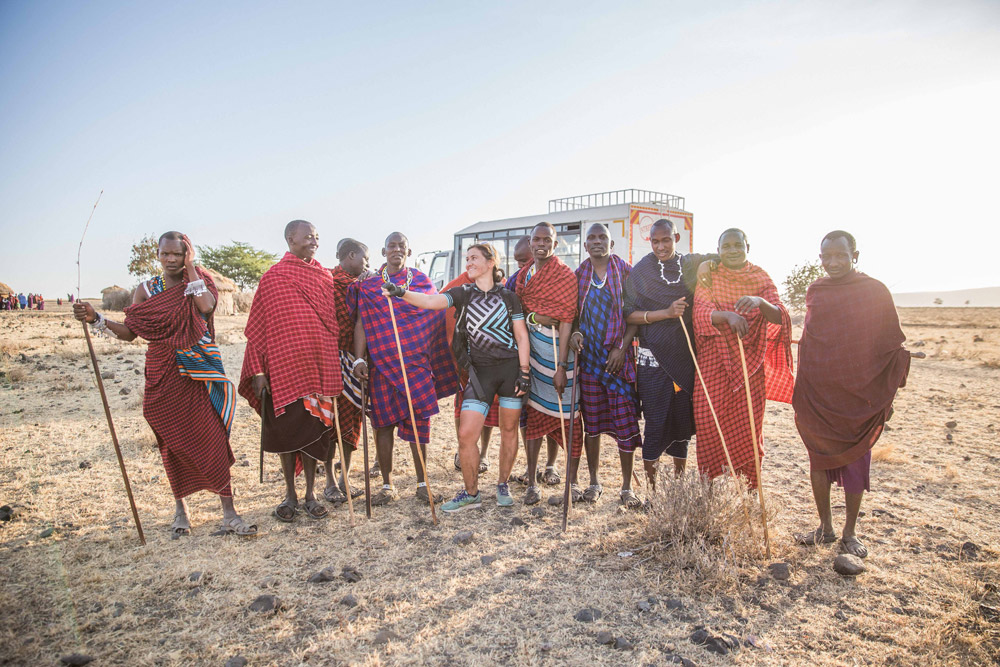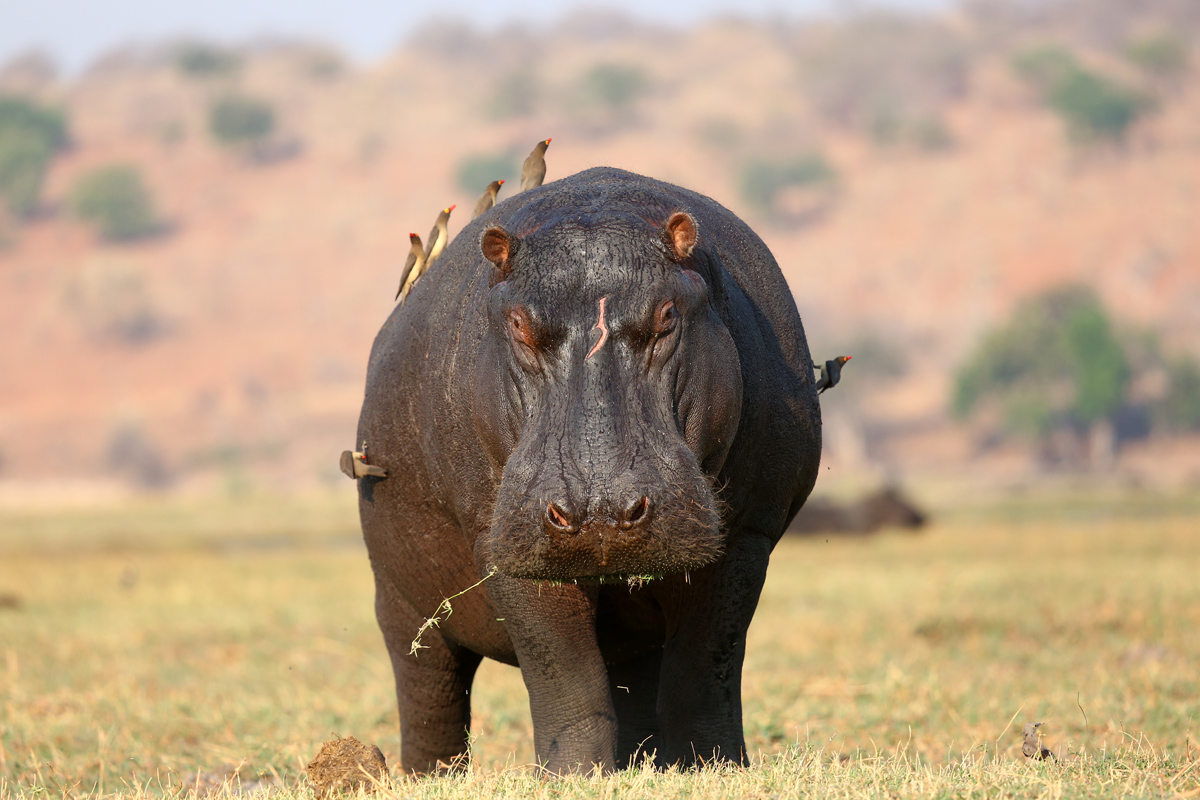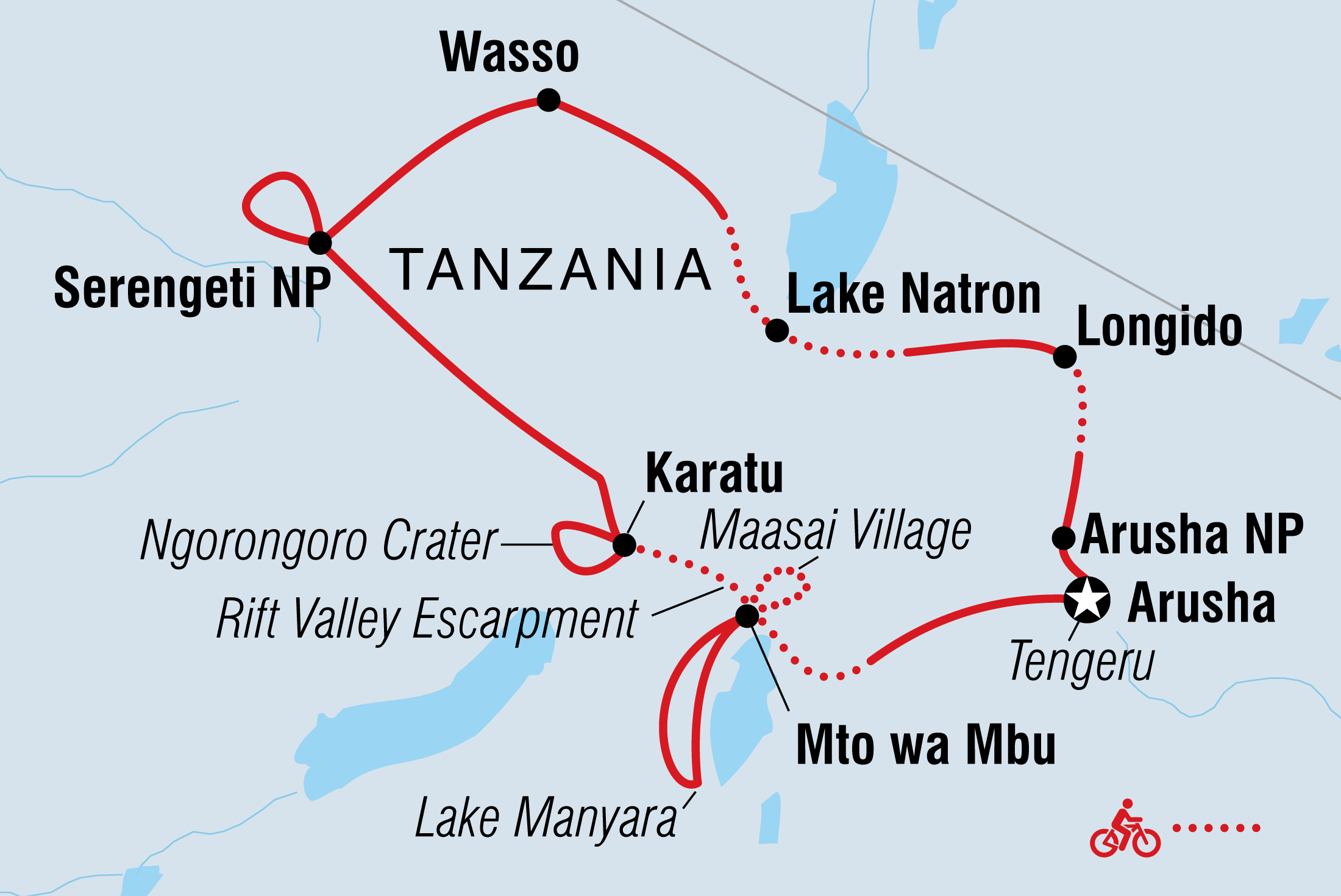Cycle Tanzania
Cycle Tanzania
$4470
Cycle Tanzania
13 Days Starting and ending in Arusha
Visiting: Arusha, Arusha National Park, Longido, Lake Natron & Ol Doinyo Lengai, Lake Natron, Wasso, Serengeti, Ngorongoro Crater, Rift Valley escarpment, Rift Valley & Lake Manyara, Lake Manyara/Arusha
Tour operator:
Tour code:
YTXC
Guide Type:
Fully Guided
Group size:
1 - 12
Physical rating:
High, High
Age range:
16-99 years
Special diets catered:
Vegetarians
Tour operated in:
EnglishTrip Styles:
Interests:
From:
$4470
$3478 (USD)
Operator discount: -$894
The Big ADVENTURE Sale: -$98
-22%
Tour Overview
Brimming with mighty predators and birds, the Serengeti and Ngorongoro Crater are must-visits for any Tanzania trip, but safaris are only the beginning. This unique cycling adventure has you cruising down Great Rift Valley escarpments, strolling through farm villages, roasting and grinding your own coffee, drifting off to sleep among nocturnal creatures, experiencing the culture of the Maasai people, pedalling far off the beaten track to trails where no cars go, and of course sipping sundowners at sunset. With a support vehicle at every step of the journey, take your time to discover Tanzania on two wheels.
Highlights
Itinerary
Day 1: Arusha
Location: Arusha
Accommodation: Hotel
Jambo! Welcome to Tanzania. Set in the foothills of Mount Meru, Arusha is the gateway to Tanzania’s incredible array of national parks, and at 1300 m above sea level, enjoys a temperate year-round climate. With no activities planned until your important group meeting at 6 pm, if you arrive early you might like to take a stroll to acquaint yourself with the town, or perhaps recover from your long flight with a cup of fair-trade coffee – Tanzania is renowned for its richly roasted beans. The Maasai Women Fair Trade Centre is a great spot to pick up some pretty handmade crafts to take back home, and the proceeds help the local women access education and healthcare. After the meeting, why not join your new cycling buddies for an optional dinner at one of Arusha’s many restaurants.
Day 2: Arusha National Park
Location: Arusha National Park
Accommodation: Dorm rooms with shared facilities
Meals Included: breaksfast, lunch, dinner
Departing Arusha early, climb aboard your support vehicle and head east to Usa River before heading north. From here you'll jump onto your bike for the first time and cycle north in the shadow of Mount Meru, through Arusha National Park. Today's ride is a tough introduction to riding in Africa as the roads are rough and at times hilly. All your hard work is worth it though as you enjoy the unique thrill of riding a bicycle through an African National Park – something few people ever experience. Arrive at your overnight destination, the Mkuru Training Camp, located in the foothills of Mount Meru. This small, low-impact community 'camp' is dedicated to research, education and training for the promotion of good practices in natural resources management.
Included Activities:
-
Day 3: Longido
Location: Longido
Accommodation: Guesthouse
Meals Included: breaksfast, lunch, dinner
Enjoy a relatively flat and level ride on unsealed road before hitting the tarmac and heading north (on the road that connects Kenya to Tanzania) to Longido. Once you meet the main road – which has surprisingly little traffic – you can enjoy a gentle mostly downhill ride for the remaining 40 kilometres to Longido itself. Longido is located on the outskirts of the Mount Longido Forest Reserve. Here you will interact with the famous Maasai people for the first time. Any cultural experience with the Masaai is a colourful affair and one you will remember for a long time. Those with some energy left can take an optional short hike along one of the many walking trails on Mount Longido.
Day 4: Lake Natron & Ol Doinyo Lengai
Location: Lake Natron & Ol Doinyo Lengai
Accommodation: Camping with shared facilities
Meals Included: breaksfast, lunch, dinner
Today is something unique – you'll brave the unpaved roads which cut west across from Longido to Lengai. These roads aren’t listed on internet maps and they're often in poor condition, so you'll be praising your front suspension. The amazing views and car-free environment, however, make it worth the effort. Travel across dry open plains with the Kerimasi, Gelai and Kitumbeine mountains in the distance as well as seven remarkable volcanos, the jewel being the spectacular ‘Ol Doinyo Lengai’, which means ‘Mountain of God' in the Maasai language. Close to your remote campsite is the shallow, salty Lake Natron. Often coloured bright pink or deep red due to algae, it is a mecca for the flamingo. Reaching temperatures above 40°C and with a similar acidity to ammonia, this is not a place to swim, but the view is certainly an interesting one.
Day 5: Lake Natron
Location: Lake Natron
Accommodation: Camping with shared facilities
Meals Included: breaksfast, lunch, dinner
Get as active or as relaxed as you like today. Take the bike and ride to the nearby Saitoti River to cool off in the natural plunge pools. Visiting Lake Natron is also a great option, it's located around 15 kilometres from your camp. Serious adventures can opt to climb Ol Doinyo Lengai volcano (2878 m), which means a very early start (midnight) in order to enjoy the epic sunrise views. While it requires no technical skills or equipment, the climb itself is challenging, long and steep, with large section of scree, and it does get cold in the early mornings. The key is to take the mountain slowly – you will hear the cries of 'pole pole' (slowly slowly) on a regular basis as your guide leads you up the mountain. While it is a sometimes technical, and always hard climb, the sunrise views from the top are truly superb, and you'll be one of the only climbers there.
Optional Activities:
-
Day 6: Wasso
Location: Wasso
Accommodation: Camping (basic) with shared facilities
Meals Included: breaksfast, lunch, dinner
Prepare for a long travel day as you leave Natron behind and climb the valley walls to the Rift Valley escarpment. First you will cycle a relatively flat section (approximately 40 km), with great views of Lake Natron itself. Here you'll climb aboard your vehicle and inch your way up the incline, gaining over a kilometre of elevation over this next section (approximately 50 km). There will of course be stops so you can take in the views and hopefully snap a picture of the unique Lake Natron one last time. The drive today follows the boundaries of the Serengeti National Park all the way up to Wasso, your destination for this evening.
Day 7: Serengeti
Location: Serengeti
Accommodation: Campsite (basic) with shared facilities
Meals Included: breaksfast, lunch, dinner
You’ll be swapping two-wheels for four-wheels today as you leave Wasso behind and make the 3-hour drive to Serengeti National Park. Your afternoon game drive by overland vehicle puts you in the realm of some of Africa's mightiest predators. The rolling grasslands of the Serengeti, dotted with acacias, are perhaps the quintessential image of Africa. Game viewing in the Serengeti is amazing and as you camp out at night, don't be surprised to hear lions in the distance as you recount your wildlife sightings from the day. In normal circumstances, you can expect to see four out of the Big Five game during your stay, however if you also spot the elusive rhino – count yourself incredible lucky. Your campsite tonight is basic but it's within the park itself, so listen out for the sounds of nocturnal creatures as you drift off to sleep.
Included Activities:
-
Day 8: Serengeti
Location: Serengeti
Accommodation: Camping (basic) with shared facilities
Meals Included: breaksfast, lunch, dinner
It’s an early start a you venture out for a sunrise game drive, followed by a second game drive in the afternoon. Between the two drives you can relax, just like the animals do, during this hotter part of the day. Enjoy a hearty meal during this break and perhaps take a siesta. Depending on wildlife movements and opportunities for sightings, however, the drive may continue through lunch and last all day. In this case, you will return to the lodge in the late afternoon. For an unforgettable experience this morning, you might like to take an optional sunrise balloon ride over the Serengeti.
Included Activities:
-
Optional Activities:
-
Day 9: Ngorongoro Crater
Location: Ngorongoro Crater
Accommodation: Camping with shared facilities
Meals Included: breaksfast, lunch, dinner
Make tracks for the Ngorongoro Crater (approximately 4 hours), perhaps visiting Simba Kopjes along the way – an outcrop of rocks favoured by lions and cheetahs who can often be seen basking in the morning sun. On arrival, take in the amazing crater on a 4WD game drive. This is one of Africa's real natural treasures, often touted as a vast Garden of Eden. Within this crater lies every type of ecosystem, including riverine forests, open plains, freshwater and alkaline lakes. The scenery is spectacular as you descend almost 600 metres down to the crater floor. You are bound to see a variety of incredible wildlife here, and it's your best chance to spot the endangered black rhinoceros. Enjoy lunch by a lake – an area inhabited by hippopotamus, elephants, lions, and many others. Afterwards, head back up the crater walls to the National Park gate where you’ll get back on your bike and ride the undulating path to your campsite in Karatu.
Included Activities:
-
Day 10: Rift Valley Escarpment
Location: Rift Valley escarpment
Accommodation: Camping with shared facilities
Meals Included: breaksfast, lunch, dinner
Jump back on your bike today and take on a hilly ride from your campsite in Karatu to your tented accommodation in the small trading town of Mto wa Mbu, next to the incredible Lake Manyara. While today’s ride seems short at only 35 kilometres, the constant uphill and downhill track will test your fitness and cycling skills. On arrival, rest your weary legs and perhaps reward yourself with a refreshing drink and celebrate today’s accomplishments with your fellow cyclists.
Ride distance - approx. 35kms
Included Activities:
-
Day 11: Rift Valley & Lake Manyara
Location: Rift Valley & Lake Manyara
Accommodation: Camping with shared facilities
Meals Included: breaksfast, lunch, dinner
This morning, ride to the northern shores of Lake Manyara, described by Ernest Hemingway as the 'loveliest I have seen in Africa'. Leaving the tarmac behind, you’ll cycle through small villages and plantations before emerging out onto the smooth lake flood plains where you’ll continue our ride to the lake’s edge. Keep your eyes peeled for the surrounding wildlife – if you’re travelling during the rainy season, you might see the abundance of birdlife flocking around the lake, including millions of flamingos, or if you’re lucky, even ride alongside wildebeest and gazelle. Leaving the lake behind, ride back through Mto Wa Mbu and on to the dusty tracks leading to a traditional Masaai village. Located between towering hills and with awesome views of the surrounding plains, this is an ideal place to enjoy lunch with the locals. After lunch, drive (or cycle if you want to!) back to Mto Wa Mbu.
Included Activities:
-
-
Day 12: Lake Manyara/Arusha
Location: Lake Manyara/Arusha
Accommodation: Hotel
Meals Included: breaksfast, lunch
Make the most of your last day on the bikes – but first, explore Lake Manyara National Park on a final game drive. Surrounded by the towering ridges of the Rift Valley escarpment, the lake is bordered by lush forest and, if you’re lucky, you may even spot the famous Lake Manyara tree-climbing lions, as well as elephants, baboons, and over 400 recorded species of birds. After lunch, get back on your bike and cycle the smooth and relatively traffic-free tarmac road to the Makuyuni junction before reboarding the vehicle and driving back towards Arusha. On the way, stop to enjoy a walking tour through the village of Tengeru and get a closer look at local farm life. You'll also learn how to roast and grind coffee before tasting the results of your hard work. Continue to Arusha with plenty of time to get cleaned up before enjoying an optional final night dinner with your fellow cyclists.
Included Activities:
-
Day 13: Arusha
Location: Arusha
Meals Included: breaksfast
Your trip finishes today, and you are free to depart after breakfast.
What's Included
-
Tengeru - Local family farm visit and community walk
-
Arusha National Park Entry
-
Serengeti National Park - Overland Vehicle Game Drive
-
Ngorongoro Crater - 4x4 Game Drive
-
Mto Wa Mbu - Village walk & local dinner
-
Lake Manyara - Game drive
-
Masai village visit
-
Meals
12 breakfasts, 11 lunches, 10 dinners
-
Accommodation
Camping (8 nights), Hotel (2 nights), Dormitory with shared facilities (1 night), Guesthouse (1 night)
-
Transport
Bicycle, Support Vehicle, Overland vehicle, Jeep
What's Not Included
-
Tipping and Gratuities
-
International Travel
Transport
- For sustainability and a lower carbon footprint, only trips that have 4 or less clients traveling we will use 4x4 jeeps instead of an overland truck.
- While there are occasions we use local public transport such as trains, buses or taxis to cover long distances or attend non-cycling activities we predominantly use the bicycle as our main form of transport. On most of our trips we also have a support vehicle as secondary transport for travelling longer distances, avoiding hazardous areas to cycle, as a backup should we have any incidents and of course an option for those that would prefer not to cycle for an hour or a day. These vehicles range from a minivan in most regions up to a full sized coach or overland vehicle in others.
- Your main luggage is transported in the support vehicle
- OUR BIKES - TANZANIA & SOUTH AFRICA
- We use Specialized Pitch Pitch Sport 650b bikes on this trip. These bikes are mountain bike-style with flat bars, front suspension, 27.5" wheels and 24 gears. For more specific information and sizing please see https://www.specialized.com/ru/en/bikes/mountain/trail/pitch-sport-650b/106497
- INCLUDED OR HIRE BIKES: CONDITIONS OF USE
- You must not mistreat the bicycle and must return it in the same condition as when you received it (excepting ordinary wear and tear). You should immediately inform the supplier in the case of breakdown or loss. The provider is entitled to charge for any damage caused to the bicycle during the period of hire. You must also make sure that the bicycle is secured when not in use. If the equipment is lost or stolen you may be liable for the replacement value of the bicycle. The bicycle remains the property of the supplier and you may not sell, rent out or part possession with the bicycle. You must not use the bicycle while under the influence of alcohol or drugs.
- BRINGING YOUR OWN BIKE
- While we’re confident in the quality and suitability of the bikes we include, we do recognise that sometimes you just need the comfort of your own bike to enjoy the ride. If you are thinking of bringing your own bike on this trip, please advise us at time of booking and take note of the below information. If you do choose to bring your own bike, please note that we will not being carrying a spare bike for you.
- SUITABLE TYPE OF BIKE
- Although the surfaces of the roads we travel on are generally good there are occasionally gravel or potholed sections of road/track. As such, we recommend a 'mountain' or 'hybrid' style bike with plenty of gear selections for easy cruising. For more details on the type of roads we’ll be riding on see the ‘Physical Rating’ section of your Essential Trip Information. Please contact your booking agent if you have any questions about the suitability of your bike.
- We usually cannot accept tandem bikes on our trips as they are often too large for our transport. In some destinations we can make an exception. Please ask your booking agent if you are interested in bringing a tandem bike.
- BEFORE THE TRIP
- We recommend that you have a full service of your bike performed by a trained mechanic to help minimise any issues you may have during the trip. Please also ensure that you have specific and adequate cover for loss, damage or theft for your bike under your travel, home and contents or specialist insurance policy.
- DURING THE TRIP
- Your bike will be transported in the same way as our included bikes, usually in the support vehicle or on the bike trailer. While we endeavour to take the best care we can, you should recognise that transported bikes do get the occasional bump or scratch along the way. The same applies when we take other forms of transport, such as a train, where we are unable to pack the bikes ourselves. Your bike will be secured in the same way as our included bikes. This can occasionally be outside the vehicle (where the bikes are locked together).
- In order to reach our destination, it is necessary for us to travel via various modes of transportation, including planes and trains. Any extra costs involved with transporting personal bikes are your responsibility. This includes (but is not limited to) additional transport costs and customs/import fees.
- While our mechanics can usually assist with minor repairs, you are responsible for the safety and upkeep of your own bicycle. This includes conducting regular safety checks of your bike during the trip and cleaning your bike. In addition, any parts that require replacing are your responsibility. Most destinations have access to only limited spares along the way and access to bike shops can be days apart. Therefore, please ensure you bring any spare parts that you may require (especially specialist parts).
- TRANSPORTING YOUR BIKE TO/FROM THE DESTINATION
- Your preferred airline should have no problem carrying your bike, but many will charge an extra fee. Contact them before departing to discuss their arrangements for transporting bikes.
- A well-padded bike box (obtainable from a bike shop) is usually the best method of plane transportation. We recommend that you accompany your bicycle on the flight. Unaccompanied bicycles have been known to spend some extra days in the hands of customs authorities.
- Many taxis are not large enough to transport a bike box/bag so you may be delayed waiting for a suitably sized vehicle.
- INCLUDED OR HIRE BIKES: CONDITIONS OF USE
- You must not mistreat the bicycle and must return it in the same condition as when you received it (excepting ordinary wear and tear). You should immediately inform the supplier in the case of breakdown or loss. The provider is entitled to charge for any damage caused to the bicycle during the period of hire. You must also make sure that the bicycle is secured when not in use. If the equipment is lost or stolen you may be liable for the replacement value of the bicycle. The bicycle remains the property of the supplier and you may not sell, rent out or part possession with the bicycle. You must not use the bicycle while under the influence of alcohol or drugs.
Accommodation
- Accommodation on this trip is mainly in two-person canvas dome tents with camping mattresses supplied.
- The type and variety of accommodation are determined by conditions on each of our routes. Each route is different - on some, we use a mixture of campsites and wild camps; on others, we also use hotels. In Africa, it's not usually practical to camp when staying in towns and cities, so we use hotel accommodations and eat out in local restaurants.
- There may be the occasional night stop when we stay on the grounds of a hotel or at a campsite, which may also have rooms/cabins available. In this case, there may be a choice of camping or upgrading to a room. Rooms cost approximately USD 40-100 per room per night for a twin room and cannot be pre-booked. Standards of these rooms vary greatly, and we recommend viewing the room before purchasing the night's accommodation. The day-by-day itinerary advises when upgrades may be possible (subject to availability).
- Keep in mind that if we are staying in dormitory accommodation, you may have to share with other passengers or be split into same-sex rooms.
- Campsites do have facilities, but they usually aren't to the same standard you would find in Western countries. For example, the bathroom facilities can be very basic. Toilet paper is rarely provided, and shower facilities can be as simple as a hose pipe spurting out cold water. Wild camps have no facilities at all.
- At times, there may be spare tents in the vehicles. Unfortunately, these cannot be used without the purchase of a single supplement. This is to ensure the tents avoid wear and tear or are clean and ready for the customers arriving on the next section of the trip.
Included Activities
- Arusha National Park Entry
- Serengeti National Park - Overland Vehicle Game Drive
- Serengeti National Park - Overland Vehicle Game Drive
- Ngorongoro Crater - 4x4 Game Drive
- Mto Wa Mbu - Village walk & local dinner
- Lake Manyara - Game drive
- Masai village visit
- Tengeru - Local family farm visit and community walk
Important Information
- 1. A single supplement is available if you’d prefer not to share a room on this trip. The single supplement applies to all nights of your trip and is subject to availability. Please speak to your booking agent for further information.
- 2. Bicycle hire is included in your trip price. Please advise your height at time of booking so as we can organize a suitable sized bike.
- 3. Bike helmets are compulsory on this trip. We are unable to hire bike helmets locally so please ensure you bring your own bike helmet from home.
- 4. On this trip we have a single leader that rides with the group, and another that drives the support vehicle (acting as a back marker where needed). Where the vehicle cannot travel directly with the cyclists (e.g., a cyclists-only path) your leader will assign a person from the group to act as a back marker.
- 5. To help cut carbon emissions and increase comfort, for group of 4 or less travellers we will use private 4WD jeeps rather than a large overland trucks.
- 6. For groups of 4 or less we stay in permanent tents rather than participatory camping.
- 7. Due to heavy rainfalls making the mountain hiking trails far more technical than usual we have suspended climbing Mt Ol Doinyo Lengai. We will assess the situation on a trip-by-trip basis but please be aware you may not be able to climb the mountain.
Check out our Q&As
-
Are airport transfers included in this tour?
No
-
Are all entrance fees included in the price?
Yes, except optional activities
-
Are the local guides on the tour English speaking?
Yes
-
Is this trip right for you
To complete this trip, it is important that you are both confident and competent in riding a bicycle.
On this trip we have a single leader that rides with the group, and another that drives the support vehicle (acting as a back-marker where needed). Where the vehicle cannot travel directly with the cyclists due to cyclist-only paths, your leader will assign a person from the group to act as a back-marker.
The cycling distances are mostly short, but the roads can be rough, and the terrain of Tanzania can be hilly and the climate warm, so you'll need to be reasonably fit. Keep in mind the support vehicle will be on hand if you need a break.
Riding is done along both sealed and unsealed roads, but there are no special technical skills needed. Some practice at home is a great idea, however, especially for downhill sections.
This trip involves a partial camping experience, giving you access to more remote destinations at close proximity, and the joy of experiencing the elements. This is a participatory trip – a fancy way of saying you’re not just along for the ride, but you are part of a team! Be prepared to roll up your sleeves and help out with camp activities like food prep and washing up. It’s all about giving your new travel mates a hand, and everyone knows there’s nothing worse than trying to put up a tent on your own! -
Are international flights included in this tour?
No
-
Are children permitted to take part in the tour?
Yes if aged 16+ and accompanied by an adult
-
What policies are in place for Covid-19?
Please contact us for latest COVID-19 policies
-
How long has the tour company been trading?
Intrepid Travel has been taking travellers around the world for over 30 years
-
Will the accommodation included meet local health and safety regulations?
Yes
-
What Ethical Travel credentials does the tour company have?
Since 2002, The Intrepid Foundation has supported over 130 organisations across the world. We’re creating positive impact through the joy of travel, community and connection.
-
Do you operate a “single share” option and how does it work?
Over 50% of traveller travel solo with Intrepid. You can choose to share a room with another solo travelle of the same sex for no additional charge, or choose to pay a single supplement if you’d like your own room. Please request this when booking, and we will secure you a single supplement wherever possible. Please note, if you are booking a last-minute trip, it may be harder for us to secure a single room
Reviews of this Operator
Dates & Availability
tourhub Discount Available - Sign In
Sunday - Friday
Jun 16, 2024 - Jun 28, 2024Sunday - Friday
Jul 07, 2024 - Jul 19, 2024Sunday - Friday
Jul 21, 2024 - Aug 02, 2024Sunday - Friday
Sep 08, 2024 - Sep 20, 2024Sunday - Friday
Oct 13, 2024 - Oct 25, 2024Sunday - Friday
Dec 08, 2024 - Dec 20, 2024Book with Confidence
-
Free Date Changes
Intrepid Travel allows you to make 10 free date changes, as long as the change is made at least 56 days before the start of the tour.
-
Transfer as credit to Future Tours
Intrepid Travel allows you to transfer existing payments to a future tour to avoid cancellation fees if you can't travel and inform intrepid travel, 56 days before departure.
-
Low Deposit
Intrepid Travel requires a minimum deposit of 400 USD per person or the full booking value, whichever is less, with the final balance not due until 56 days before departure.
-
Cancellation Policy
We don't charge a cancellation fee, here is a summary of intrepid travel charges.
Up to 56 days before tour starts: Forfeit 100% of deposit.
At 55 days before tour starts: Forfeit 30% of booking price.
At 30 days before tour starts: Forfeit 60% of booking price.
At 14 days before tour starts: Forfeit 100% of booking price.
-
COVID Protection
Trips from 1 January 2023 onwards
From 1 January 2023, Intrepid will no longer require travellers to provide proof of vaccination against COVID-19.
However, we continue to strongly recommend that all travellers and leaders get vaccinated to protect themselves and other Specific proof of testing or vaccination may still be required by your destination or airline. Please ensure you check travel and entry requirements carefully.
This policy excludes all Polar trips and select adventure cruises, where testing and vaccination remains a requirement. Please refer to the Essential Trip Information of your chosen tour for more details. -
Terms and Conditions
Why book with tourhub?
Safe & Secure
Your money is protected in an external trust until you travel.
100% Guaranteed Refunds if your trip is cancelled.
The safest way to make overseas, multi-currency payments.
Guaranteed Best Value
Industry leading discounts, we won't be beaten on price.
No cancellation or amendment fees from tourhub.
(Operator terms may apply)
Expert Knowledge
Reliable & unbiased advice from travel experts.
Direct contact with the tour operator via our messaging service.
Inspiration & advice from a community of 6000+ real travellers, influencers & content creators.
Trusted Service
Official partners & licensed agents of 1000+ tour operators worldwide.
Don't just take our word for it...
"Tourhub: Friendliness, Professionalism & Integrity I would happily give tourhub a 6* review if I could..."


